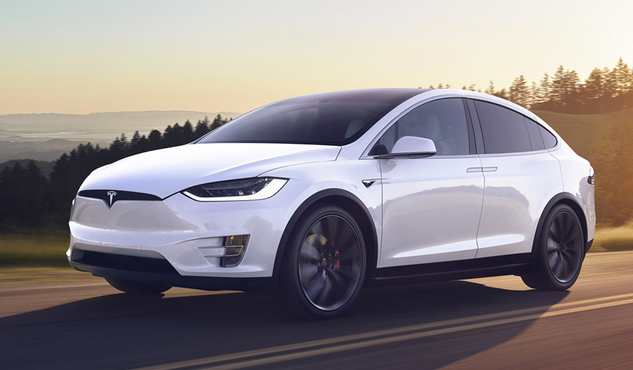We have the luxury, the honor, of speaking to a lot of individual investors here at Alhambra. Whether they are clients or future clients (optimism is my default condition), the most common view of stocks is that they are overvalued and a fall – a large fall – is inevitable. And there is no stock that embodies that view more than Elon Musk’s Tesla Incorporated. It was once known as Tesla Motors but Musk changed the name in early 2017. There may never have been a more successful rebranding in the history of the world.
At the time of the change the stock traded for about $50 and it was expensive for a car company. Today it trades for $585 and it is not, as I have been told repeatedly by every Tesla bull I’ve encountered, an automobile company. Now, the rebranding did take some time, the stock basically a breakeven hold for investors from 2017 to 2020. In fact, I’d venture to say that even the Tesla bulls would be surprised to learn that if you bought the stock at the beginning of 2014 you would have still been looking for a profit in June of 2019. The company, according to Musk himself, nearly went bankrupt during the Model 3 ramp from mid-2017 to mid-2019 and the stock traded as low as $35.
But here on the cusp of 2021, the transformation from car company to a vehicle for every investor’s dreams is complete. That mythical 2014 investor who bought around $36 and held on, is now sitting on an investment worth 16 times her original investment. The stock is no longer an expensive automobile stock, its peers are no longer Ford or GM or Daimler, whose stocks all trade for a fraction of sales. No, Tesla stock trades at a multiple of sales that puts even the best tech companies to shame. Of the FANMAG stocks everyone is so enamored with (Facebook, Apple, Netflix, Microsoft, Amazon, and Google), only one trades for more than 10 times sales (Microsoft at 11 times). Amazon, the stock all value investors have shunned due to its “insane” valuation is the cheapest of the bunch at just 4.7 times sales.
Tesla stock, meanwhile, trades at a nose bleed inducing 21.5 times sales. Not being a mere car company allows investors – and I use that term very loosely – to imbue the company with qualities that cannot be quantified. Tesla is whatever investors can imagine might emerge from the obviously brilliant mind of Elon Musk. Tesla is indeed “not a car company”. It is an abstraction and therefore un-valuable, if not invaluable.
Is Tesla stock overvalued? It seems a ridiculous question to ask about a stock that represents the equity of a 17-year-old company when the market is pricing it at about the same total as Berkshire Hathaway, a company that represents the lifetime achievement of 90-year-old Warren Buffett. In case you don’t remember, Buffett is also known as one of the greatest investors of all time.
I can only say that we don’t own Tesla and valuation is one of several reasons. I will also admit that I thought the stock was overpriced in 2014, 2015, 2016, 2017, 2018, and 2019. And based on the performance of the stock during that time, I felt vindicated in that analysis. Now, based on some recent conversations with Tesla “investors”, I am apparently out of touch, an old man who just doesn’t understand the way the new world works. In case you haven’t heard, Tesla isn’t a car company.
Tesla is not an isolated case. Indeed, I think global financial assets in general are viewed in very much the same way as Tesla. “Investing”, as practiced by the new indexers, is no longer an exercise of valuing assets and liabilities, assessing business plans, or understanding industry dynamics. It no longer requires knowledge of such fundamental metrics as price/sales, price/earnings, or, heaven forfend, such anachronistic concepts as book value.
“Investors” today increasingly own indexes, mostly through ETFs, that are abstractions every bit as much as Tesla. The S&P 500 is corporate America, a way to capture your share of the spoils of our semi-capitalist, large company-dominated, service-oriented, debt-driven consumerist society. Or at least the crumbs that are left after the oligarchic elite gorges itself. Most investors have no idea what’s actually in SPY or whether it is cheap or dear. They just call it “the market”, that thing the passive mafia has told them they must own all the time no matter what.
The same could, of course, be said about almost any index tracked by an ETF, of which there are now more than the assets in which they are designed to invest. If you want to own any segment of the market, there’s an ETF for that. And if you spend a little time online you can find out what exactly it owns, how much it costs, and how it has performed. Not that most investors actually do that, but they could.
If you ask an investor who holds, say, XBI, the SPDR S&P Biotech ETF, what they own, they’ll tell you, quite accurately, that they own “biotech” stocks. They will not be able to tell you that 16 of the top 17 holdings lost money last year. In fact, I’d be willing to bet that of the top 10 holdings, the average XBI holder wouldn’t even recognize the names of any except the largest. And that one they would recognize only because it has been in the news quite a bit lately – Moderna. They also probably wouldn’t be able to tell you the difference between XBI and IBB, the iShares biotech ETF, even though they are starkly different investments. To most investors, they are just two versions of the same thing – biotech stocks.
If investors don’t know what they own, if they don’t know what the ETF they just bought owns, if they don’t know the basic fundamentals of the assets they purchase, how could it possibly matter whether they are cheap or dear? And just so you understand, I am not talking here about just retail, do-it-yourself investors. What I’ve said above applies almost equally to most of the people in my industry. Not all and certainly not the best, but a very large majority have no idea what they are actually buying. And why would they bother to find out when, for the last decade at least, it really hasn’t mattered?
All those investors we talk to, who are so convinced that stocks are expensive and must fall are at least half right. Stocks are indeed quite expensive if one measures them against the past. The S&P 500 is valued today at multiples that are higher than any time in history save the great dot com bubble of the late 90s. The details are indeed not important. Whether you call it expensive, very expensive, outrageously expensive, insanely expensive, or just plain nuts, the one thing “the market” is not, is cheap. Or even reasonable for that matter. But that doesn’t mean stocks are about to fall.
Tesla’s stock price is not driven by real, quantifiable fundamentals. It isn’t driven by what is actually happening at the company today or even what is known to be planned by the company in the near future. It is driven by speculation about what Elon Musk might be planning for the company in the far future. And it has always been a high-risk speculation, valued at billions of dollars even as it teetered on the verge of bankruptcy.
Tesla has been a wildly profitable speculation, exhibiting classic momentum characteristics. Its price is rising because its price is rising. And that describes large parts of the markets today, where uninformed speculation has driven prices to levels that are hard to justify based on realistic expectations about the future.
That doesn’t mean that there are no sectors of the US market or non-US markets or individual company stocks that are reasonably priced. We spend considerable time and effort identifying them and absent a general market decline – which can never be ruled out – we think those investments will reward us with returns that exceed that of the market. Otherwise, we wouldn’t own them. We’d just own “the market” and pretty soon we’d be proud shareholders in “not a car company”. Tesla will join the S&P 500 this month.
True investors require a margin of safety offered by sound fundamentals that tell a story that entices others to invest. That combination builds momentum that is supported by something other than the mass psychosis that supports stocks like Tesla. Markets today are dominated by speculators, people who don’t know what they own and don’t care, as long as the price goes up.
We are not speculators. We are investors and we think it matters quite a lot how one achieves portfolio returns. From Tesla to Bitcoin to any of the other of today’s overly popular assets, a rising price does not magically transform a speculation into an investment. I don’t know when fundamentals will matter again, but I am certain they will. And when they do Tesla will be just a car company again.
Full story here Are you the author? Previous post See more for Next postTags: Featured,Markets,newsletter,stocks




















